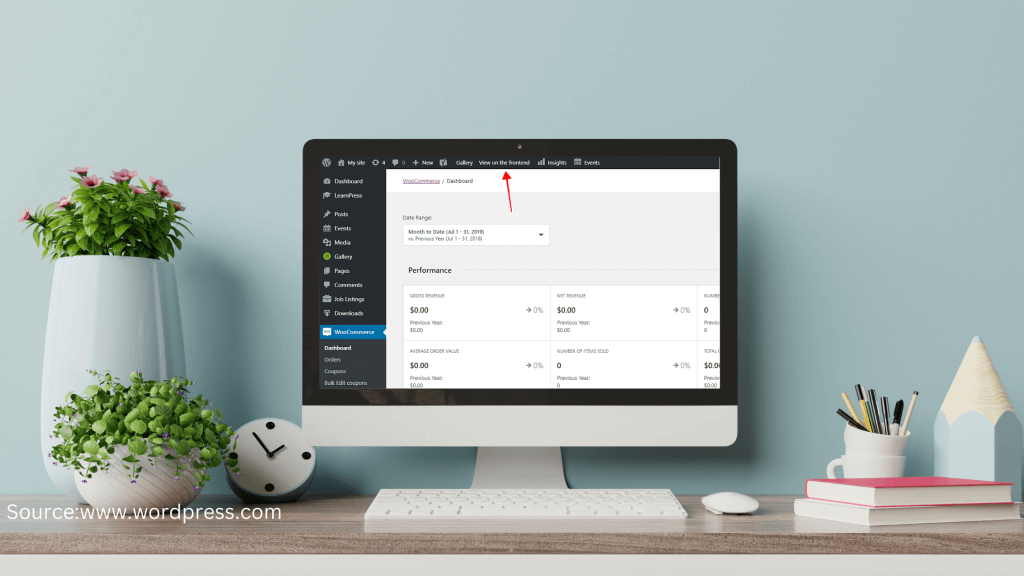The Best eCommerce Platforms of 2024: Choosing the Right Solution for Your Business
In 2024, businesses are increasingly relying on digital platforms for buying and selling. Whether you're starting an online store or expanding your current ecommerce application, choosing the right platform is crucial. This guide explores the best e-commerce platforms of 2024, covering key features, pros, cons, and pricing to help you select the right solution for your business.

In 2024, selecting the ideal eCommerce platform is critical for any business looking to succeed online. Whether you're launching a new online store or upgrading an existing one, it’s essential to understand each platform's unique features, pricing, and suitability. This guide covers the top eCommerce platforms for 2024, helping you find the right fit based on your specific business needs.
Overview of Top eCommerce Platforms for 2024
Table of Contents
- Shopify: Best All-in-One Platform
- WooCommerce: Perfect for WordPress Users
- BigCommerce: Ideal for Large-Scale eCommerce
- Wix eCommerce: Great for Small Businesses and Beginners
- Magento (Adobe Commerce): Built for Enterprise-Level eCommerce
- FAQs
1. Shopify: Best All-in-One Platform for Your Online Store
Shopify is renowned as an all-in-one solution for eCommerce, ideal for businesses of any size. Shopify simplifies the online selling process, making it accessible for users without coding experience. With extensive tools and third-party integrations, it supports everything from product management to marketing.
Key Features
- Drag-and-Drop Store Builder: Build a custom store without coding skills.
- Multi-Channel Selling: Sell seamlessly on Facebook, Instagram, Amazon, and more.
- App Store: Choose from over 6,000 apps for features like payment processing, inventory tracking, and sales notifications.
- Product Management: Manage product listings, descriptions, and inventory with ease.

Shopify e-commerce dashboard showing sales analytics and product listings.
Pros
- User-friendly interface.
- 24/7 customer support.
- Supports multiple payment options, including Shopify Payments.
Cons
- Transaction fees unless using Shopify Payments.
- Costs rise with third-party apps.
Pricing
- Basic: $39/month
- Shopify: $105/month
- Advanced: $399/month
Best For: Small to mid-sized businesses looking for an easy-to-use, all-inclusive solution. Learn more about Shopify’s selling channels.
2. WooCommerce: Ideal for WordPress Users and Flexible eCommerce Applications
For WordPress users, WooCommerce is a powerful, flexible solution. WooCommerce offers extensive plugin options to support physical and digital products, making it highly adaptable.
Key Features
- WordPress Integration: Works seamlessly with WordPress.
- Flexible Personalization: Customize your store’s design and checkout experience.
- Plugin Support: Expand functionality with plugins for SEO, payments, and more.
- Digital and Physical Product Support: Sell products, eBooks, or software.

WooCommerce product management dashboard showcasing various product listings.
Pros
- Free to start.
- Complete control over store elements.
- SEO-friendly due to WordPress integration.
Cons
- Requires some technical skills.
- Setup is more complex compared to Shopify.
Pricing
- Free Plugin (hosting costs start at $3.95/month).
- Additional paid plugins available.
Best For: Businesses already using WordPress who need customization flexibility. Explore WooCommerce product features.
3. BigCommerce: Best for Large-Scale eCommerce Applications
BigCommerce is tailored for mid-to-large businesses needing scalability. This platform handles high-volume sales effortlessly with built-in SEO tools, multi-channel selling, and advanced analytics. BigCommerce is a good choice for businesses aiming to grow quickly without limitations.
Key Features
- Multi-Channel Selling: Sell on social media, Amazon, and Google Shopping.
- No Transaction Fees: Keeps costs low.
- SEO Tools: Helps boost store visibility.
- Product Management: Supports large inventories.

BigCommerce dashboard with multi-channel selling features.
Pros
- No transaction fees.
- Advanced customization options.
- Great for businesses planning to scale.
Cons
- More expensive than other platforms.
- Better suited for those with technical resources.
Pricing
- Standard: $39/month
- Plus: $105/month
- Pro: $399/month
Best For: Established businesses needing robust eCommerce solutions. Learn more about BigCommerce multi-channel selling.
4. Wix eCommerce: Perfect for Small Businesses and Beginners
Wix eCommerce is an affordable, beginner-friendly platform. With its drag-and-drop builder, small businesses can easily create visually appealing stores without technical expertise.
Key Features
- AI-Powered Builder: Wix ADI helps create your store with AI.
- Mobile-Optimized Templates: Attracts mobile customers.
- App Store: Add functionality with payment, marketing, and shipping apps.
- Customizable Product Pages: Showcase products with images and videos.

Wix website builder interface with an eCommerce site template.
Pros
- Ideal for small businesses and beginners.
- Affordable and easy to use.
- Mobile-optimized for better user experience.
Cons
- Limited scalability.
- Fewer customization options for advanced users.
Pricing
- Business Basic: $27/month
- Business Unlimited: $32/month
- Business VIP: $59/month
Best For: Beginners and small businesses seeking an intuitive platform. Explore Wix eCommerce features.
5. Magento (Adobe Commerce): Best for Enterprise-Level eCommerce
Magento (Adobe Commerce) caters to large enterprises requiring complete control over their eCommerce operations. This platform offers customization, scalability, and specialized B2B tools, making it suitable for complex, high-traffic businesses.
Key Features
- Flexible Design: Control every aspect of store layout and functionality.
- B2B Features: Supports wholesale, bulk pricing, and tailored user roles.
- SEO and Marketing Tools: Advanced tools to increase visibility.
- Third-Party Integrations: Sync with CRM, ERP, and more.

Magento (Adobe Commerce) dashboard showing sales analytics and customer data.
Pros
- Fully customizable for enterprise needs.
- Scalable to handle large sales volumes.
- Advanced B2B and B2C capabilities.
Cons
- Requires technical knowledge.
- Higher operational costs.
Pricing
- Magento Open Source: Free (hosting and development costs apply).
- Adobe Commerce: Custom pricing based on business needs.
Best For: Large enterprises with technical resources to manage an extensive eCommerce site. Explore Magento (Adobe Commerce) features.
Comparison Table of Top eCommerce Platforms (2024)
| Platform | Best For | Pricing | Key Features |
|---|---|---|---|
| Shopify | All-in-One Solution | $39 - $399 | Multi-channel, drag-and-drop builder |
| WooCommerce | WordPress Users | $3.95+ (hosting) | Extensive plugins, flexible control |
| BigCommerce | Large-Scale Applications | $39 - $399 | No transaction fees, SEO tools |
| Wix | Small Businesses | $27 - $59 | AI-powered, mobile-optimized |
| Magento | Enterprise-Level | Custom | B2B features, full customization |
Frequently Asked Questions (FAQs)
1. Which platform is best for small businesses?
Shopify and Wix are ideal for small businesses due to their ease of use and affordable pricing.
2. Can I sell on social media with these platforms?
Yes, Shopify, BigCommerce, and Wix support selling on platforms like Facebook and Instagram.
3. Which platform is best for large businesses?
Magento and BigCommerce are excellent for large businesses, offering scalability and advanced customization.
4. Is WooCommerce free?
Yes, WooCommerce is free, though you’ll need to pay for hosting and optional premium plugins.
5. What is the easiest platform for beginners?
Both Wix and Shopify are user-friendly for beginners with intuitive drag-and-drop features.
Conclusion
Choosing the right eCommerce platform is a strategic decision based on business size, budget, and goals. Shopify and Wix are great for small businesses, while BigCommerce and Magento cater to larger enterprises needing scalability and customization. Consider factors like SEO tools, ease of use, and pricing when choosing the best solution for your eCommerce needs.

Shivam Sharma
About the Author
With over 13 years of experience in software development, I am the Founder, Director, and CTO of Zestminds, an IT agency specializing in custom software solutions, AI innovation, and digital transformation. I lead a team of skilled engineers, helping businesses streamline processes, optimize performance, and achieve growth through scalable web and mobile applications, AI integration, and automation.

